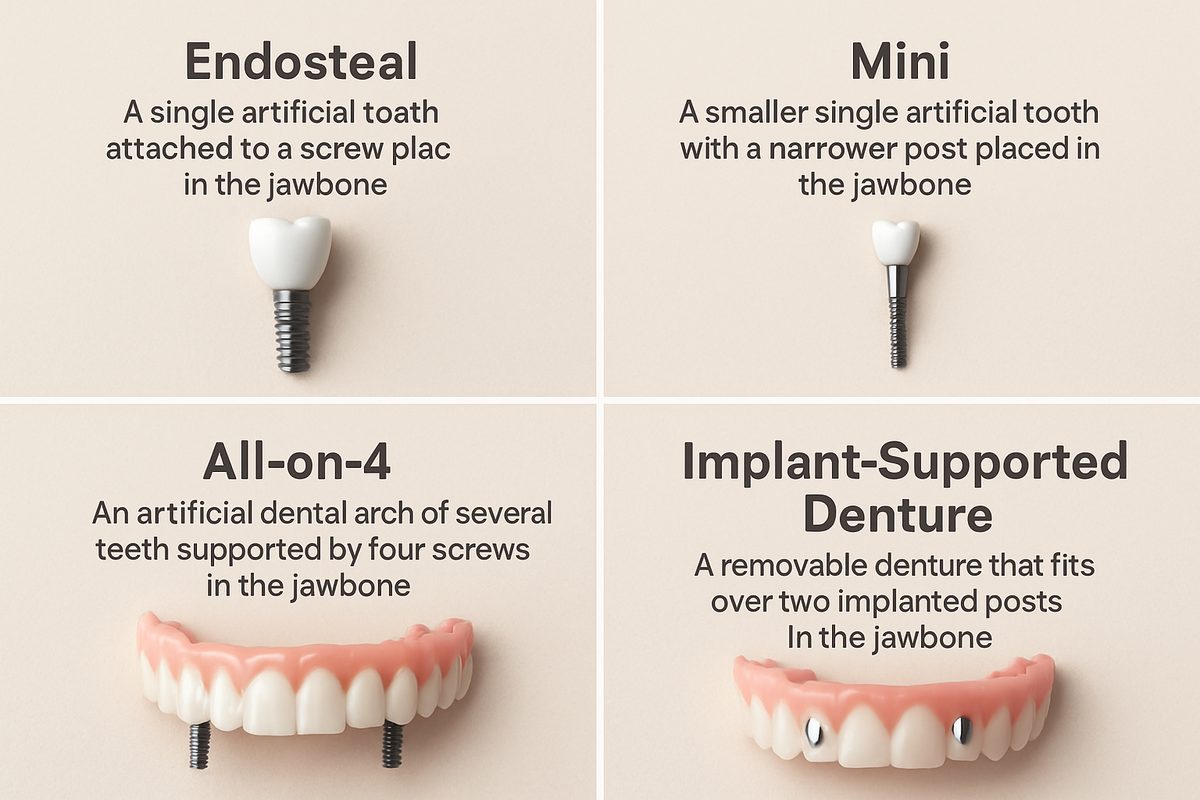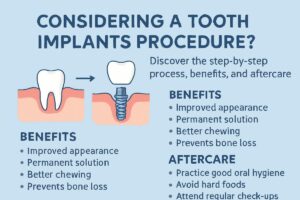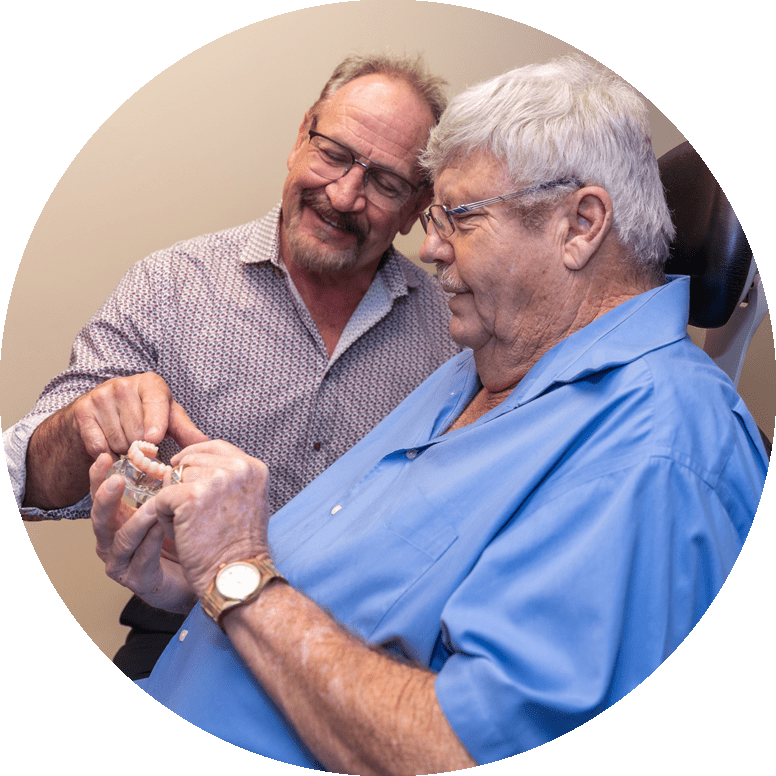Your Guide To Dental Implant Types By Abilene’s Leedy Dental Dental implant types in Abilene can feel confusing. This guide explains the main implant types, why the right choice matters, and what to expect for recovery and cost. Read on to learn about options like single-tooth implants, mini implants, and full-arch solutions, plus how Leedy Dental evaluates and treats patients.
What are dental implants?
Dental implants are artificial tooth roots placed into the jaw to hold a crown, bridge, or denture. The three main parts are the implant (the metal post), the abutment (connector), and the crown or prosthetic. Implants fuse to bone through osseointegration, creating a stable base that looks and works like a natural tooth. The phrase implant types describes the different designs and uses of these systems.
Common implant types and how they differ
Endosteal (traditional titanium) implants
Endosteal implants are the most common. A titanium post is placed in the jaw and later fitted with an abutment and crown. They work well for single-tooth replacement or several teeth, are very durable, and suit patients with good bone volume.
Mini dental implants
Mini implants are smaller-diameter posts. They are less invasive, often placed quickly, and can stabilize dentures or replace narrow spaces. They may not be as strong as full-size implants, so they’re best for limited needs or when bone is too thin for standard implants.
All-on-4 / full-arch implant solutions
All-on-4 uses four or more implants to support a full arch of teeth. It can often be done with immediate loading, letting patients leave with fixed teeth the same day. This option helps people with widespread tooth loss who want a stable, long-term prosthetic without placing an implant for every tooth.
Implant-supported bridges and overdentures
Implant-supported bridges replace a few adjacent teeth using two or more implants as anchors. Overdentures clip onto implants for improved stability compared with regular dentures. These solutions use fewer implants than individual crowns but give better function and comfort than removable dentures.
How different implant types affect treatment time, recovery, and cost
Implant types in Abilene change the timeline and price. Single-tooth implants may take several months (placement, healing, then crown), while All-on-4 can shorten time with immediate loading. Mini implants often mean faster placement and recovery but may have limits long term. Additional procedures like bone grafts or sinus lifts add time and cost. Overall, implant type is a major cost and timeline driver.
Who is a candidate for each implant type?
Good candidates depend on bone quantity, health, number of missing teeth, and habits like smoking. Standard implants need adequate bone; mini implants may work when bone is thin. Full-arch options suit patients with many missing teeth or failing teeth. A clinical exam and 3D imaging determine the best implant types for each person.
Modern technology and comfort options for implant patients
Guided implant planning and 3D CBCT scans improve accuracy and reduce surprises. In-house placement speeds care and lets teams coordinate restoration. Sedation options (nitrous or oral) make procedures comfortable. These tools influence which implant types are recommended and improve recovery.
Why patients choose Leedy Dental for implants
Leedy Dental in Abilene brings 30+ years of implant and full-mouth rehab experience. The team provides in-house placement and restoration, modern imaging, and patient-focused financing. Their training and outcomes focus on predictable, long-lasting results.
Next steps — getting evaluated for the right implant types
At a consultation expect an exam, imaging, and a clear treatment plan. Bring questions about timeline, costs, and financing. If you’re ready, schedule a personalized implant evaluation to find which implant types will work best for your smile.





